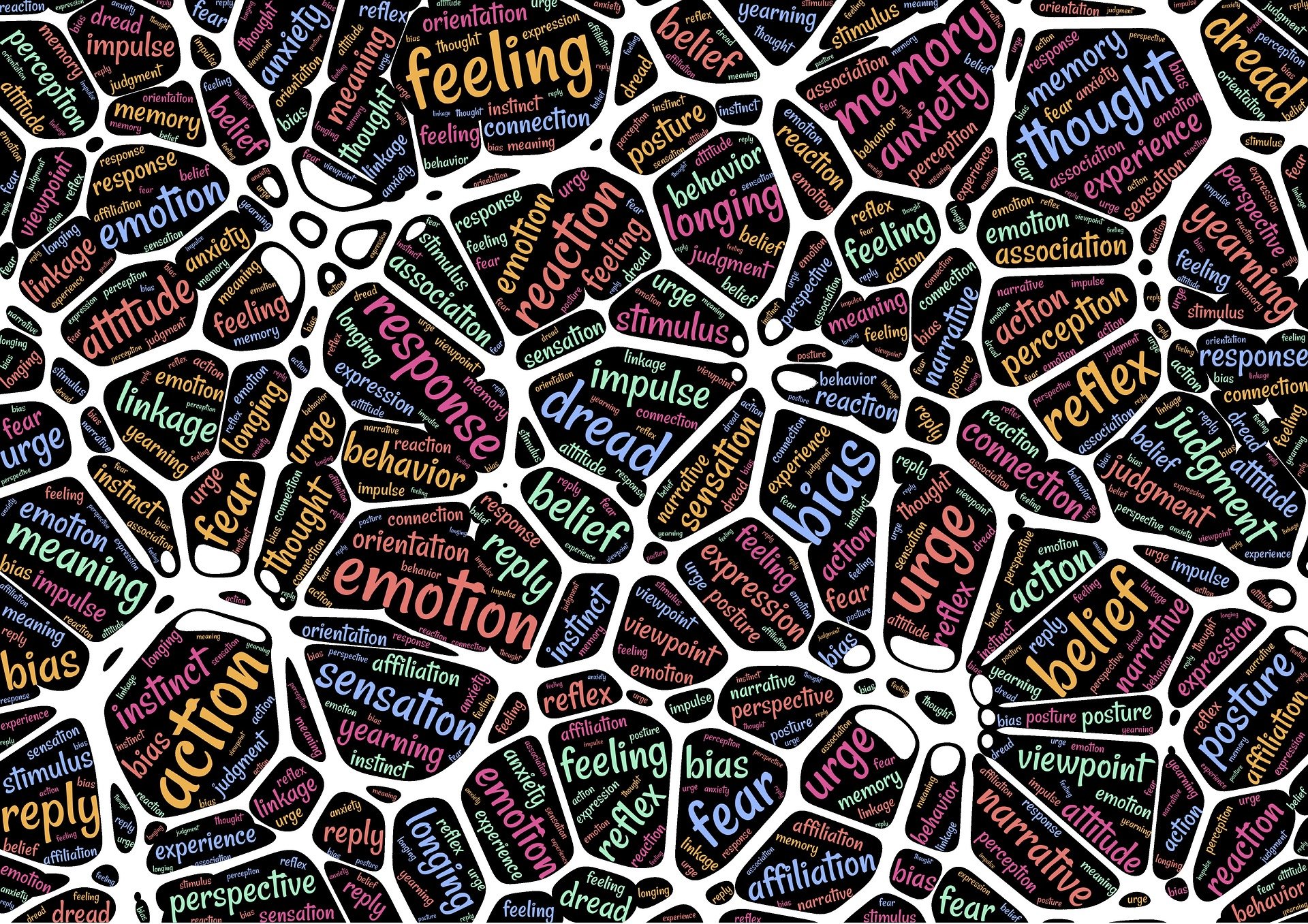 A Sacred Bond in a Stressful Age
A Sacred Bond in a Stressful Age
Marriage in Islam is far more than a contract. It is a sanctuary, a partnership, and a path to tranquillity. The Qur’an describes spouses as garments for one another—symbols of protection, comfort, and dignity. Yet today’s pressures on Muslim life in Britain can strain this sanctuary. Work demands, social media, high living costs, and widening cultural gaps can challenge even the most committed couples. Consequently, the conversation about marriage and mental health must be honest, practical, and rooted in faith.
Across Western Muslim communities, delayed marriage, rising divorce rates, and financial anxieties are reshaping expectations. Reports indicate that a significant share of marriages break down—some estimates suggest divorce rates exceeding 30% in North America and over 40% among British Muslims. Although statistics vary, the underlying issues are clear: young people need safer routes to meet, stronger guidance, and ongoing support. Therefore, building resilient marriages requires a blend of Islamic principles, psychological insight, and community infrastructure.
Tranquillity and Mercy — Islam’s Blueprint for Emotional Health
Islamic teachings position marriage as a source of sakīnah—calm, security, and solace. Spouses are invited to relate with affection and mercy, to forgive one another’s shortcomings, and to cultivate gratitude. This spiritual vision is not abstract; it translates into practical habits that protect mental wellbeing. For example, observing prayer together, keeping the home free from backbiting, and giving sincere praise become daily acts that nourish the heart.
Moreover, prophetic guidance elevates kindness as the hallmark of piety at home. The Prophet Muhammad, peace be upon him, exemplified gentleness, humour, and consideration with his family. When couples anchor their behaviour in these values, they transform ordinary moments—sharing a meal, giving thanks, resolving a misunderstanding—into acts of worship. Consequently, faith-based habits offer protective effects for mental health, creating a shared purpose and a rhythm of mutual care.
The Modern Pressure Cooker — How Today’s Realities Affect Muslim Couples
Despite this beautiful blueprint, life in modern Britain can be overwhelming. Many young Muslims juggle career progression, long commutes, family expectations, and the digital noise of constant connectivity. Meanwhile, the cost-of-living crisis intensifies worries about housing, weddings, and raising children. These stressors can amplify anxiety and depression, especially if couples internalise unrealistic standards of success or romance. In addition, social media often sets a performance stage for marriage—curated images of perfection that bear little resemblance to real life.
Furthermore, the relationship landscape has changed dramatically. Halal networking options remain limited for some, while unsafe online spaces and romance fraud have harmed trust. Professionals, reverts, and those in their late 20s and 30s often struggle to meet compatible partners with shared values. This isolation can affect both confidence and mental health. Therefore, we must design safer, more dignified pathways into marriage—ones that respect Islam’s ethics and the realities of British life.
Before the Nikah — Building Emotional Readiness
Healthy marriages begin with healthy individuals. Emotional literacy—recognising one’s triggers, needs, and communication habits—lays essential groundwork for marital harmony. Before marriage, it helps to reflect on family dynamics, past wounds, and attachment patterns. Do I fear conflict and withdraw? Do I pursue reassurance in ways that overwhelm others? Awareness of these tendencies allows us to choose new behaviours. In practice, this might mean learning to pause during tension, use “I” statements, or seek counselling to resolve long-standing pain.
Pre-marital education is equally crucial. Courses covering Islamic rights and responsibilities, money management, intimacy, and conflict resolution equip couples to navigate common pitfalls. Both partners should understand consent, boundaries, and the importance of compassion in decision-making. Additionally, practical skills—like budgeting, household planning, and time management—reduce strain later on. When couples invest in learning beforehand, they enter marriage with clarity and confidence rather than guesswork.
Communication, Mercy, and Boundaries — Daily Practices for Mental Health
A thriving marriage is built day by day. Regular check-ins help couples address small issues before they grow. Choose a calm moment each week to ask: What went well? Where did we struggle? What support do we need from each other? Keep feedback specific and kind. Moreover, agree on a repair ritual after disagreements, such as taking a short break, offering a sincere apology, and ending with a dua for unity. This routine signals safety and helps prevent emotional escalation.
Equally, boundaries protect mental wellbeing. Agree on technology etiquette: phones away during meals, no late-night work emails in bed, and respectful social media use. Discuss how extended family will be involved and how to manage conflicting expectations. Importantly, establish financial boundaries early: shared budgets, savings goals, and honesty about debt. Although money conversations can be uncomfortable, transparency builds trust and reduces anxiety. As you practise these habits, you create a home culture that supports both love and mental health.
Faith in Action — Spiritual Habits that Nourish the Mind
Spirituality is not separate from psychology; it supports it. Couples who pray together often report increased calm and cohesion. Begin by keeping the five daily prayers central—where feasible, pray at least one together. Add short practices such as reciting morning and evening supplications, reading Qur’an for a few minutes daily, or walking together while making dhikr. These micro-practices regulate the nervous system and anchor the couple in remembrance and gratitude.
Fasting, charity, and service also strengthen the marital bond. Fasting cultivates patience and self-control, qualities essential for managing conflict. Charity shifts focus from self-concern to shared purpose, reminding couples that their home is part of a wider ummah. Meanwhile, volunteering together—whether at a local food bank or mentoring youth—creates meaningful memories and shared stories. Consequently, faith practices help couples handle stress with perspective, hope, and resilience.
Safety, Dignity, and Trust — Meeting in the Digital Age
In our digital world, romance fraud has become an increasingly serious risk, with significant losses reported across the UK. Safety is not a luxury; it is a necessity for mental wellbeing. Hence, identity verification, transparent processes, and appropriate oversight restore trust. Platforms that use robust digital ID checks reduce the likelihood of deception and emotional harm. Likewise, features that enable guardian involvement can protect against manipulation while preserving adult autonomy.
As an example, Muslim Marriage Services (MMS) integrates Shariah principles with modern safeguards. Every member is verified through a biometrics partner (Yoti), which supports a safer environment. Moreover, DynamIQ Guardian provides optional mahram monitoring to deter coercive behaviour, while ProfileShield allows secure profile sharing with optional guardian approval. These features are designed to protect dignity and mental health. Importantly, MMS also emphasises education and support—recognising that safe, informed introductions are only the first step towards a stable marriage.
Money Matters — Financial Wellbeing as Marital Wellbeing
Financial stress is among the most common triggers of marital conflict. In Britain’s current economic climate, couples must plan proactively. Begin with a simple, shared budget—list income, fixed costs, and weekly spending. Set aside an emergency fund, however small, to reduce panic when life happens. Agree on spending thresholds: for example, discuss any purchase over a set amount. Additionally, consider an annual “values audit”—review where your money goes and whether it reflects your priorities.
At the same time, resist the pressure to overspend on weddings. A modest nikah, celebrated with sincerity and community warmth, often fosters more peace than a lavish event with lingering debt. If needed, explore ethical assistance. Some initiatives—such as MMS’ Marriage Fund—aim to support those who struggle with wedding costs, helping to lower financial barriers. By aligning money habits with Islamic principles of moderation, couples reduce friction and protect mental health.
Women’s Wellbeing, Men’s Wellbeing — Normalising Support
Both spouses need care. Women may face unique pressures around fertility, pregnancy, miscarriage, and postnatal recovery. Postnatal depression and anxiety are real; early support is essential. Partners can help by sharing the load, advocating at medical appointments, and protecting rest time. Communities should normalise meal trains, childcare support, and flexible expectations for new mothers. Compassionate language—free from blame—makes a significant difference to a woman’s mental health during these seasons.
Men’s mental health deserves equal attention. Many men suffer in silence due to stigma or fear of appearing weak. Yet asking for help is a sign of courage. Encourage men to access counselling, peer groups, and mentoring. Moreover, schedule decompressing time after work and share household responsibilities to reduce burnout. When couples and communities recognise both partners’ needs, they build marriages that are fair, tender, and resilient.
Conflict, Accountability, and Repair — Managing Tough Moments
Even strong marriages face conflict. The goal is not to eliminate differences, but to manage them skillfully. Learn to distinguish solvable problems from ongoing differences in temperament or background. For solvable issues, agree on a plan and review it weekly. For enduring differences, practise acceptance, humour, and creative compromise. Crucially, avoid contempt, stonewalling, harsh criticism, and defensiveness—these four habits corrode safety and intensify distress.
Furthermore, seek help early. Skilled marital counsellors, coaches, or mediators—ideally with an understanding of Muslim life—can de-escalate tensions and teach practical tools. Faith leaders and community mentors also play a role, especially when they collaborate with qualified professionals. The MMS Guardian Council model, for instance, underscores the importance of balanced, Shariah-informed guidance. When couples feel held by a caring, competent network, their mental health outcomes improve markedly.
Community Ecosystems — From Isolation to Belonging
Marriage thrives in community. Mosques, student societies, and neighbourhood groups can host premarital workshops, parenting circles, and mental health awareness events. Interfaith dialogue with Christian and Jewish neighbours can foster shared values around family life and dignified courtship. These initiatives reduce stigma, create friendships, and open doors to support when challenges arise. Moreover, they remind couples that they are part of something larger—an ummah that cares about their flourishing.
Additionally, the British healthcare landscape offers practical resources. NHS Talking Therapies provides free, evidence-based treatment for anxiety and depression, often with culturally sensitive pathways. Muslim charities and helplines can also support those in distress. When spiritual care, community initiatives, and clinical services work together, couples access the right help at the right time.
Red Flags, Safety Planning, and When to Seek Protection While disagreements are normal, certain behaviours signal risk: sustained belittling, coercive control, threats, financial abuse, sexual pressure, or isolation from friends and family. Take these signs seriously. Build a safety plan—trusted contacts, secure documents, and knowledge of local support services. A guardian or mentor can act as a protective presence. In digital spaces, insist on ID-verified introductions and keep personal details private until trust is established.
Platforms that combine identity checks with guardian options can reduce harm significantly. Features like DynamIQ Guardian and ProfileShield build accountability into the process of meeting and communicating. Additionally, clear reporting pathways and swift moderation deter predatory behaviour. Ultimately, a safety-first culture protects mental health, preserves dignity, and allows genuine connection to grow.

When Marriages End — Compassionate Separation and Healing
Islam recognises that some marriages cannot and should not continue. In those cases, a compassionate separation is better than prolonged harm. Seek qualified guidance to understand rights and responsibilities, especially regarding finances and child arrangements. Aim for respectful communication and stable routines for children. Meanwhile, allow space for grief. Counselling, journalling, and spiritual practices can support recovery and renewal.
Importantly, divorce is not a moral failure. It is a serious step taken after serious consideration. Communities must avoid stigma and support divorced Muslims in rebuilding their lives. With time, many find that healing deepens faith, clarifies values, and prepares the heart for healthier relationships in the future.
A Practical Toolkit for Couples
- Weekly check-in: 30–45 minutes to review highs, lows, and plans.
- Repair ritual: pause during conflict, apologise sincerely, make dua together.
- Tech boundaries: device-free meals, shared rules for social media.
- Money map: monthly budget, emergency fund, and annual “values audit.”
- Faith anchors: at least one prayer together daily and short Qur’an recitation.
- Learning plan: premarital or marital workshop each year; book club on relationships.
- Support circle: identify two trusted mentors and one professional resource.
- Safety layer: use ID-verified platforms and enable guardian features where appropriate.
Ethical Innovation for a Healthier Future As the marriage landscape evolves, the Muslim community needs ethical innovation—tools that are Shariah-compliant, research-informed, and humane. MMS aims to model this approach: digital ID verification via a trusted biometrics partner (Yoti), optional guardian oversight to deter coercion, secure profile sharing, and a focus on education and counselling. Furthermore, initiatives like a Marriage Fund help remove financial barriers, while a dedicated Guardian Council—guided by experienced scholars and legal experts, including women’s voices—sets standards for trust and accountability.
In parallel, MMS engages beyond its own platform, collaborating with wider faith communities to promote shared values of dignity, consent, and compassion. This ecosystem approach matters. It signals that marriage mental health is not an afterthought—it is central to our collective wellbeing. By investing in safety, skills, and spirituality, we can nurture healthier families and a stronger ummah.
Conclusion: Mercy in the Middle, Hope at the End
Marriage is a journey, not a snapshot. It will test patience, expand empathy, and reveal strengths you did not know you possessed. When couples centre their life on tawakkul, mutual mercy, and steady learning, they become each other’s sanctuary in a noisy world. In Britain today, with its unique challenges and opportunities, we can build marriages that are safe, informed, and deeply rooted in faith.
Ultimately, the path forward blends timeless guidance with modern wisdom: prophetic character, practical skills, and protective systems. If we commit to these principles—individually and as a community—we can transform the narrative from crisis to compassion, from strain to sakīnah. May Allah place tranquillity in our homes, illuminate our choices, and unite our hearts in goodness.

